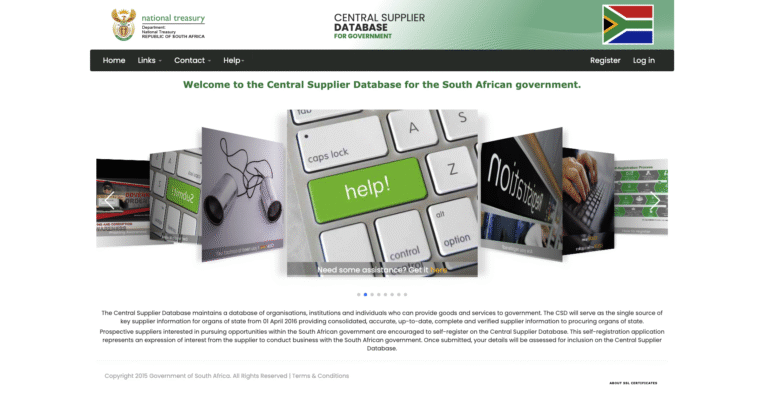Navigating tender applications in South Africa can feel overwhelming, especially if you’re unsure about the required documents. Whether you’re a small business owner or a large corporation, submitting a complete and accurate application is crucial to securing opportunities in the competitive tendering process. Missing even one essential document could cost you the chance to win a valuable contract.
Understanding the specific documents you’ll need not only saves you time but also boosts your chances of success. From compliance certificates to financial statements, each requirement plays a vital role in demonstrating your credibility and readiness to deliver. Getting it right the first time ensures you’re one step closer to standing out in a crowded field.
Importance Of Tender Applications In South Africa
Tender applications enable fair competition for public and private contracts, ensuring transparency and equal opportunities. In South Africa, these applications support economic empowerment by promoting small and emerging businesses into significant procurement processes.
Winning tenders can strengthen relationships within key industries, whether your business operates in construction, energy, or consultancy. It increases your credibility, positioning you as a reliable service provider. This exposure can result in long-term partnerships and consistent work opportunities.
Compliant applications contribute to sustainable business growth. By meeting tender requirements, such as tax clearance and B-BBEE certificates, you demonstrate adherence to legal and industry standards. This helps establish a reputation for professionalism and trustworthiness.
Key Documents Needed For Tender Applications
Accurate and complete documentation is essential for successful tender applications in South Africa. By preparing these key documents, you improve your chances of securing contracts and standing out in competitive procurement processes.
Registration Documents
Provide certified copies of your company’s registration documents from the Companies and Intellectual Property Commission (CIPC). These include your Certificate of Incorporation and, if applicable, amendments or name changes. This demonstrates your business’s legal status and eligibility for tender participation.
Tax Clearance Certificate
The South African Revenue Service (SARS) issues this document to confirm your company’s tax compliance. Include a valid Tax Compliance Status PIN for online verification. Without tax clearance, your application may be disqualified from consideration.
B-BBEE Certificate
Submit an updated Broad-Based Black Economic Empowerment (B-BBEE) certificate or an affidavit if you’re an exempted micro-enterprise (EME) or qualifying small enterprise (QSE). This certificate reflects your compliance with B-BBEE legislation, impacting your competitiveness in tenders.
Company Profile
Prepare a comprehensive company profile showcasing your business’s services, experience, and achievements. Tailor it to highlight your expertise relevant to the tender requirements. This serves as a persuasive marketing tool in demonstrating your capabilities to evaluators.
Financial Statements
Provide audited or independently reviewed financial statements covering at least the past two years. Include balance sheets and income statements to verify your financial stability. For smaller businesses, ensure records align with National Treasury requirements.
Industry-Specific Requirements
Different industries may require unique documents for tender applications. Meeting these requirements ensures compliance and strengthens your submission.
Construction Industry
You must include a Construction Industry Development Board (CIDB) grading certificate to qualify for construction tenders. This certificate proves your company’s capability to handle projects of specific sizes. Safety compliance is also critical, requiring an Occupational Health and Safety (OHS) certificate. If applicable, provide proof of relevant construction licenses or registrations, such as plumbing or electrical certifications.
Additionally, a detailed project portfolio is essential. Include recent projects along with costs, timelines, and references to highlight relevant experience. Submit a signed Bill of Quantities (BoQ) when specific material or cost breakdowns are requested.
Health Sector
Compliance with regulatory bodies is mandatory for health sector tenders. Provide a South African Health Products Regulatory Authority (SAHPRA) certificate if your work involves medical devices or drugs. Attach healthcare professional credentials, such as HPCSA registration, for tenders involving medical services.
Include a Good Manufacturing Practices (GMP) certificate for pharmaceutical production or supply tenders. Provide proof of storage or distribution standards, such as suitable warehouse certifications for temperature-controlled or sensitive materials. If you’re bidding for health infrastructure projects, a quality assurance plan is often required.
Technology And Software
Technology tenders often call for intellectual property (IP) documentation. Include evidence of software licenses, patents, or trademarks to validate your legal ability to provide solutions. Attach ISO/IEC 27001 certification to demonstrate information security management compliance, especially for cybersecurity-related tenders.
Offer a comprehensive proposal that showcases your technical capabilities. Detailed project case studies, highlighting previous success in system deployments or custom solutions, add credibility to your bid. Provide documentation of your team’s expertise, such as professional certifications (e.g., Microsoft or Cisco credentials).
Common Mistakes To Avoid When Preparing Tender Documents
- Submitting Incomplete Documentation
Providing incomplete submissions reduces your chances of success. Ensure all required documents, such as the Tax Clearance Certificate and certified company registration documents, are included. Double-check specific tender requirements to avoid omissions.
- Failing To Align With Eligibility Criteria
Non-compliance with criteria leads to disqualification. Verify that your business meets conditions like B-BBEE status, CIDB grading, or industry-specific certifications before applying.
- Ignoring Deadlines
Late submissions aren’t accepted. Organize your documents early and factor in time for unforeseen delays, such as acquiring official certifications or corrections.
- Using Generic Company Profiles
A poorly tailored company profile undermines your application. Highlight industry-relevant experience and achievements that directly align with the tender’s scope.
- Overlooking Formatting Requirements
Non-adherence to prescribed formats jeopardizes your application. Follow provided templates for documents like the BoQ or technical proposals, ensuring compliance with font size and layout instructions.
- Providing Unverified Financial Information
Audited financial statements build credibility. Always ensure they are accurate, up-to-date, and verified by a certified accountant to demonstrate financial stability.
- Failing To Address Evaluation Criteria
Mistargeted documentation reduces competitiveness. Detail how your proposal fulfills specific evaluation criteria, such as pricing, capability, or technical specifications, to maximize scoring potential.
- Neglecting Proof of Experience
Absence of relevant references or project portfolios weakens your case. Include completed projects with client testimonials or credentials validating prior success.
- Submitting Expired Certificates
Documents like the SAHPRA certification or Tax Clearance Certificate must be valid. Regularly renew necessary certifications to avoid last-minute complications.
- Ignoring Local Procurement Requirements
Tenders in South Africa often prioritize local economic development. Address these aspects with supporting documentation to underline compliance with Public Procurement Acts or localization policies.
Tips For A Successful Tender Application
Understand The Requirements
Review the tender document thoroughly to identify all submission criteria. Check any specific industry requirements, such as certifications or compliance standards, before you start preparing your application.
Organize Your Documents
Arrange all required documents in the order specified in the tender. Use clear labels for items like your company registration certificate, Tax Clearance Certificate, and B-BBEE certificate to simplify evaluation.
Tailor Your Submission
Customize your company profile and proposal to match the needs outlined in the tender. Highlight relevant experience, unique capabilities, and past successes related to the contract scope.
Focus On Accuracy
Verify all submitted details, including financial figures, for correctness. Include updated certificates, audited statements, and validated reference letters to avoid disqualification.
Meet Deadlines
Submit your application well before the closing date. Account for potential delays, whether due to document preparation or submission logistics.
Prioritize Presentation
Use a professional and consistent format across your documents. Ensure the readability of detailed sections like your Bill of Quantities (BoQ) or technical proposals.
Address Compliance Criteria
Include every mandatory document to avoid rejection. For example, ensure all certifications from regulatory bodies meet requirements for your tender’s industry.
Demonstrate Value
Explain how your services or products offer measurable benefits. Use specific data or testimonials to show how your solutions can meet or exceed the tender objectives.
Leverage Professional Assistance
Consult experienced tender consultants or use templates provided in the tender documentation if instructions are unclear. This approach reduces errors and strengthens your submission.
Conduct A Final Review
Cross-check your package against the tender checklist. Validate that all forms, attachments, and documents are signed and complete before submission.
Conclusion
Navigating tender applications in South Africa requires careful preparation and attention to detail. By ensuring your documentation is complete, accurate, and tailored to the specific requirements of each tender, you position your business for greater success.
Approaching the process with professionalism and a clear understanding of what’s needed not only boosts your chances of winning contracts but also strengthens your reputation in the industry. With the right strategies and a commitment to compliance, you can unlock valuable opportunities that support your business’s growth and sustainability.





